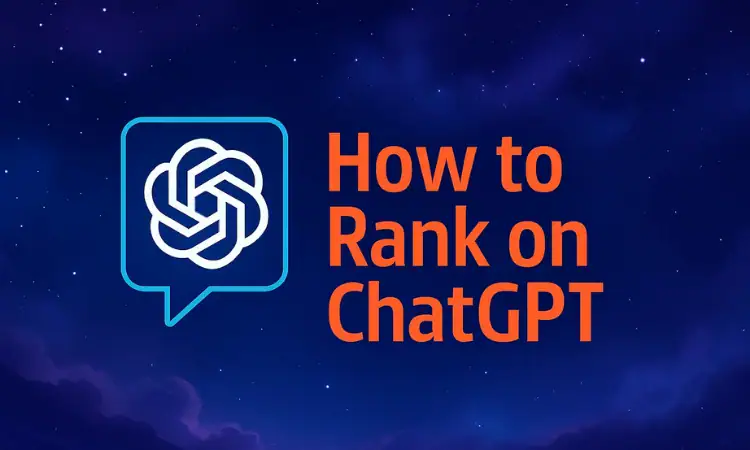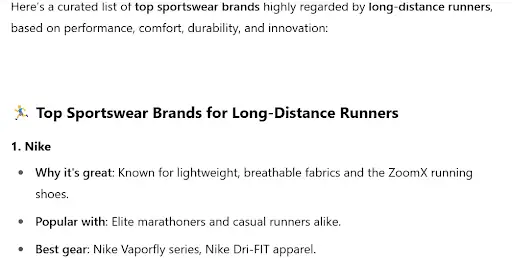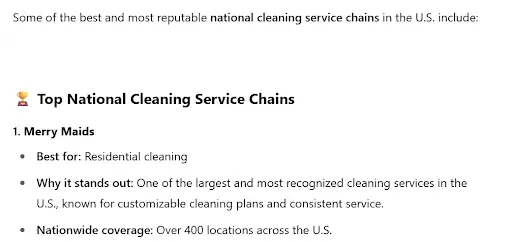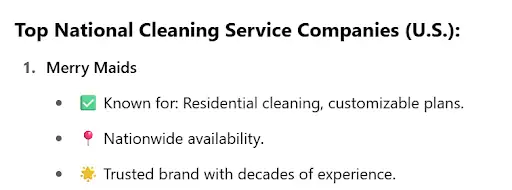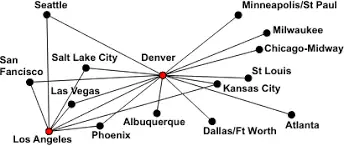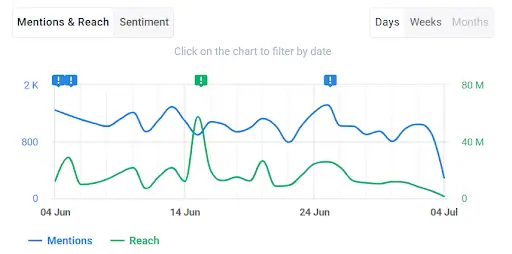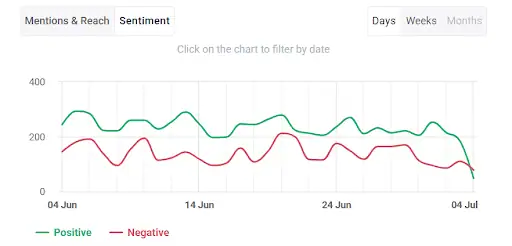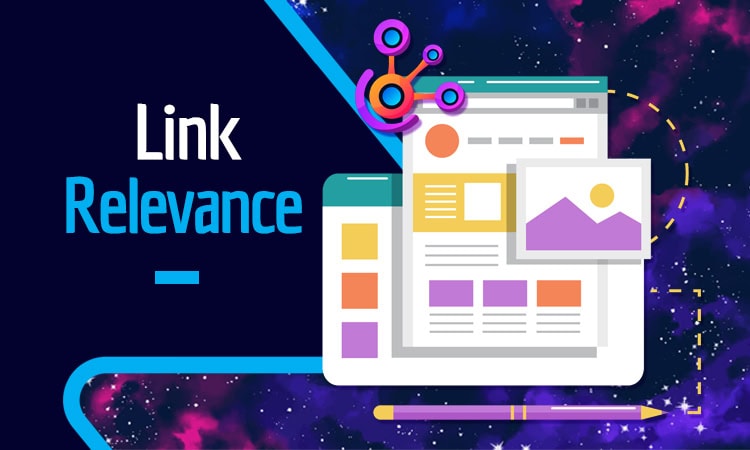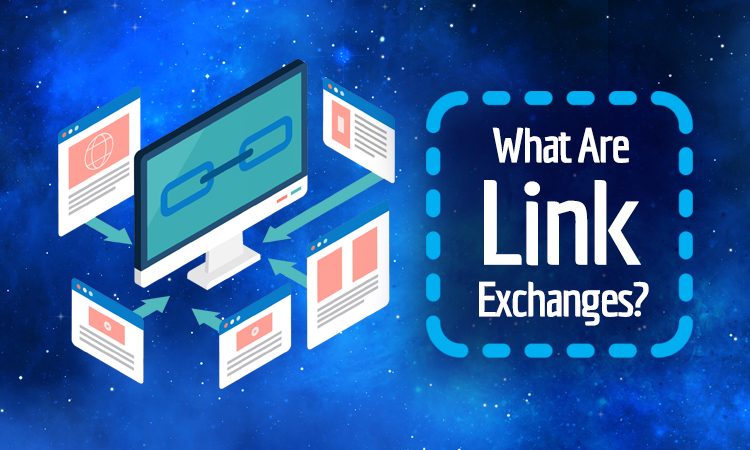What Does It Mean to Rank on ChatGPT?
ChatGPT, Gemini, and Perplexity are being increasingly used in place of traditional search engines.
When we talk about “ranking” in ChatGPT, we mean being named, cited, or recommended directly in its answer when someone asks about your product, service, or category. That kind of mention creates instant trust, which can turn into traffic, leads, and pipeline.
Most people assume this works the same way Google works. It doesn’t. ChatGPT isn’t showing a list of links; it’s deciding which company sounds credible enough to present as the answer.
At Stellar SEO, we’ve helped brands take advantage of this shift.
A data SaaS company came to us after noticing AI-driven search referrals in their analytics but no citations in ChatGPT. We restructured their topical clusters, refined entity markup, and launched a targeted link campaign on high-authority tech publishers.
Within 90 days, GPT-based referral traffic increased by 61%, and their content began appearing in both ChatGPT and Gemini responses to mid- and bottom-funnel search prompts.
How ChatGPT Generates Answers
ChatGPT and similar AI systems rely on vast amounts of training data and real-time data, which helps them understand natural language patterns and user intent.
The system has been trained on millions of books, academic articles, textbooks, and research, and newer models can also use current data sourced from things like stock market updates. When a user asks a question, the AI model draws on thousands of authoritative sources and then uses predictive algorithms to offer direct answers tailored to the user’s needs.
AI platforms can utilize both unstructured writing, such as blog posts, and structured writing, like datasets, to provide relevant information. As such, ChatGPT visibility is a great way to build authority and brand visibility.
The Key Role of Entity Recognition and Brand Association
ChatGPT determines which brands to mention by identifying how clearly they are connected to specific topics across the web. This process, called entity recognition, helps AI systems understand who you are, what you do, and how credible your brand is within your niche.
When your brand name, services, and focus topics consistently appear together across your website, earned media, and authoritative backlinks, it strengthens that association. This forms the foundation of entity optimization, which involves structuring your content and digital presence so that large language models recognize your expertise and reference your brand in their answers.
Real-World Examples: Brands Winning in ChatGPT
In response to the prompt “Please provide a list of the best sportswear brands for long-distance runners,” ChatGPT replies:
In the bullet points about Nike, ChatGPT uses language that closely mirrors how brands like Finish Line describe Nike products, terms like “lightweight” and “breathable” that are commonly used across reputable retail sites. Nike also uses the same keywords about lightweight and breathability in its website copy, as seen in this post about shoes for sweaty feet.
The AI model understood that a marathon runner would want a lightweight shoe that wicks moisture, and it emphasized this in its responses.
Merry Maids appears first for the questions “What’s the best national chain for cleaning services?” and “What’s the best company for cleaning services?”
Merry Maids is often referenced with phrases like “customizable plans” and “residential cleaning,” which align with common language used across the services page on its official site and third-party review platforms like This Old House.
Both of these brands have a strong SEO presence due to their robust backlink profile and consistent use of relevant keywords, making it more likely that ChatGPT will reference them in response to a user’s question.
Why Traditional SEO Still Matters for ChatGPT Rankings
Strong traditional SEO still drives visibility in AI-powered search. Data from ChatGPT Atlas shows a clear correlation between Google Top 10 rankings and the websites most frequently cited in ChatGPT results. The same authority signals that help you rank in Google also make your content more likely to be recognized and referenced by large language models.
ChatGPT and Microsoft Copilot now use live Bing data to inform responses, while Gemini relies on Google Search. When your site performs well in these traditional search engines, you increase your chances of appearing in AI-generated answers. Traditional SEO remains the foundation of AI visibility.
Repetition and Semantic Proximity Drive Visibility
Large language models use pattern recognition and association to determine how concepts are connected, including a brand’s products or services. We see that with Nike’s citation for best running shoes, ChatGPT pulled keywords like “lightweight” and “breathable” when determining which shoes are appropriate for long-distance runners.
Connecting your brand’s reputation with specific keyword phrases is a proven strategy for appearing in both Google and ChatGPT results. However, it’s crucial that your website copy and guest posting still sound natural, so avoid keyword stuffing and integrate these keywords where appropriate.
How to Use Prompt Testing to Audit Your Visibility?
Prompt testing is about determining a brand’s prominence for certain searches and keywords. By using different questions and assessing the outputs, you can identify how ChatGPT categorizes your brand. This can help you determine what keywords you should focus on and develop relevant content that matches user expectations.
To begin, you’ll create a list of prompts with questions or statements, such as “What is the best product for X?” or “Best agency for Y.” Your questions should range from very general to more specific, such as “What is the best grocery delivery service for a vegetarian?” depending on your specific product lines.
Once you have your list, you can begin automated prompt testing using tools like Helicone to issue hundreds of prompts and harvest the results. You can then track how many times your company was mentioned, what keywords were associated with your brand, and what prompts most consistently referenced your company.
Tools That Help You Optimize for LLM Visibility
Optimizing for AI-driven search requires tools that reveal how your content performs across both traditional and generative systems. Below are the platforms we use most often to strengthen visibility in ChatGPT, Gemini, and Perplexity.
-
SEMrush
SEMrush helps identify semantic clusters and entity relationships that influence how AI models recognize authority. Use it to map how your topics align with trending AI search queries and to uncover missing entity connections.
-
Ahrefs
Ahrefs is essential for analyzing which backlinks contribute to AI trust signals. Reviewing the referring domains of pages already cited in ChatGPT or Gemini helps you target similar authority sources and strengthen your credibility profile.
-
Frase
Frase combines natural language processing analysis with SEO insights to show how your content compares semantically to pages referenced by AI systems. It helps refine headings, keyword density, and topic coverage to better match the conversational structure AI models favor.
-
Surfer SEO
Surfer’s real-time SERP and content analysis helps ensure your structure mirrors high-performing results that AI systems reference. It is especially valuable for tuning readability, word count, and section flow so LLMs can interpret and summarize your pages accurately.
-
Brand24
Brand24 tracks brand mentions and sentiment across web and social platforms. Since ChatGPT and Perplexity analyze reputation and consistency, positive external signals reinforce your entity recognition and increase the likelihood of being cited.
-
Google Search Console
GSC highlights which entities, queries, and content formats perform well in Google Search, which directly supports Gemini and other AI visibility. It remains one of the most valuable tools for monitoring performance and technical health.
-
Bing Webmaster Tools
Because ChatGPT draws from Bing’s index, tracking crawl health and keyword rankings in Bing Webmaster Tools helps predict when your content will appear in AI-driven answers through Microsoft Copilot and GPT-4o.
-
Helicone
Helicone automates prompt testing to measure how often your brand appears in ChatGPT responses. It is one of the most direct ways to track visibility progress within AI platforms.
Structured Data That Helps You Get Cited
Structured data makes it easier for search engines and AI systems to understand and search your content. Schema.org lists some of the most commonly accepted schemas, including:
- FAQ: A list of commonly asked questions.
- Reviews: Both positive reviews and negative reviews can influence your visibility.
- Product: Product details, including name, price, availability, and ratings, for Google’s “Shopping” tab or LLM product recommendations.
- Article: Blog posts, news articles, and other content with a headline, author, and date.
- Organization: This provides brand details, including name, logo, and contact information.
- Person: Similar to the Organization schema, this provides biographic details about a person, such as name, professional title, and location.
- LocalBusiness: Essential for local SEO, the LocalBusiness scheme provides addresses, business hours, and contact information.
Google and LLMs prefer the JSON-LD format, which looks like this:
Structuring your data ensures that LLMs can quickly access the information. The sooner that they can parse your data, the more likely they are to recommend your company.
Build Topical Authority Across Key Content Clusters
It’s essential to create content that establishes your authority, as this builds trust and shows LLMs what your brand prioritizes. Structuring your content around core themes, such as product lines or services, helps ChatGPT understand the connections between your topics.
The hub-and-spoke method works similarly to how airlines have a central hub where flights are dispatched.
Your central location, like homepages and pillar pages, will be internally linked on numerous smaller pages, ensuring that everything points back to this priority content.
Pillar pages can include resource guides or a blog posts page, which individual web pages will link to. The more internal links to one page, the more it is prioritized.
Leverage Digital PR and High-Authority Mentions
Search engines and LLMs use certain websites as trust signals, recognizing their authority and reputation for high-quality information. Certain ones, like Forbes, Wikipedia, G2, and Reddit, work for every site category, while your individual niche may have its own authority sites.
You can get mentioned on these platforms through guest posts, interviews, citations, and data research. Content outreach, such as editorial posts, remains important even with ChatGPT, as these placements demonstrate your authority. Our custom outreach link building services can help you secure strong brand mentions if you don’t have the time or desire to do it in-house.
Content Formats That Align with AI Generation
LLMs prefer well-organized content with clear headings and concise paragraphs, as this allows for faster analysis. Answering direct questions helps ChatGPT match your content to user intent, and it may exactly align with what the user prompted.
Good formats include:
- Comparison Posts: Provide pros and cons of different products or services.
- Tool References: Include a list of tools and resources users can benefit from.
- FAQs: Research common questions and provide clear, direct answers.
- Feature Tables: Provide the specs for your product and common use cases.
- Table of Contents: Clear headings with “jump to” links allow users and LLMs to find what they need.
Importance of Authoritativeness and Expertise
Google uses the E-E-A-T acronym, which stands for Experience, Expertise, Authoritativeness, and Trustworthiness. You can demonstrate these through clear and transparent information about your experts, including their certifications and industry awards. This is especially important for certain industries, including finance, law, real estate, and health, where credentials are essential.
To demonstrate authority, include the following information for each listed individual on your website:
- Author photos
- Biographies
- Certifications
- Credentials
- Awards and honors
- Clearly cited quotations
- Recommendations or reviews
Why Publishing Frequency and Recency Matter
LLMs have grown more sophisticated thanks to real-time integration. As such, up-to-date and well-maintained content will increase your chances of being cited.
Perform deep research on your top-ranked competitors, including analyzing their content schedule. For highly competitive niches like news alerts, sites may be updated dozens of times a day, while less competitive and time-sensitive niches may update once or twice a week.
You will then develop an editorial calendar and begin queuing posts for regular updates. You should also regularly refresh older content to help it rank higher.
Generative SEO Services (GEO): What to Know
Generative SEO (GEO) is an emerging area of SEO focused on optimizing content for AI-generated answers. It draws on traditional SEO strategies while tailoring content for prompt alignment and LLM parsing.
While GEO is still evolving, Stellar SEO has already begun exploring AI SEO alongside traditional SEO services.
Optimize Content for Prompt Alignment
To write well-ranking content, you must first reverse-engineer user intent, then align your content with these needs.
For example, if you want to be cited as a source for a tutorial on how to use a certain product, your headlines should emphasize that you are offering a “how to.”
Question-answer formats work best for LLMs because users are generally asking questions. As such, having a question in your headline will emphasize you as a source of good information.
Common headlines to use for higher visibility on ChatGPT include:
- What Is the Best X?
- How to Use Y?
- Top Five Tools for A
- Master Resource for B
- What is C?
- Common Issues with X
Using Internal Linking to Strengthen Brand Associations
Internal linking shows LLMs how different topics are connected on your website and what niche keywords are best associated with your brand. You should aim for 2-5 internal links per 1,000 words of content, prioritizing those that are most closely associated with the given topic.
Using different variations of anchor text for a given page will strengthen the LLM’s association between the page and a certain topic by associating it with an ecosystem of phrases. Focus on one primary keyword, then use long-tail keywords to improve keyword distribution.
Strengthen Visibility Through Consistent Brand Presence
ChatGPT and other AI models analyze far more than your website. They pull context and credibility from social platforms, review sites, and user-generated sources like Wikipedia and Reddit. A consistent brand presence across these ecosystems helps large language models connect your name, services, and expertise to the right topics.
Start by ensuring your information is accurate and aligned everywhere your brand appears. Keep your company descriptions, services, and tone consistent across LinkedIn, Medium, Facebook Groups, Reddit, and Wikipedia. When LLMs see the same signals repeated across trusted platforms, it reinforces your authority and improves your chances of being referenced in AI answers.
Participate authentically. On Reddit, answer relevant questions or contribute to industry-specific threads. On LinkedIn and Medium, share thought leadership articles that echo your website’s core entities and expertise. This networked consistency strengthens how AI models recognize and represent your brand across search and conversational platforms.
How Google SGE and Bing Chat Influence LLM Behavior
Traditional search engines and AI search engines are becoming increasingly interconnected due to partnerships between these brands. OpenAI and Microsoft have developed a partnership where ChatGPT Pro users can get real-time updates from Bing. Google has formulated its own AI model, which appears at the top of search results with an AI overview.
As such, your traditional SEO tactics will help your ChatGPT performance, and more citations on ChatGPT can improve website traffic and indirectly boost rankings. By targeting both at once, you create a more effective SEO strategy that can raise your overall visibility.
Visualize Your Brand Mentions Over Time
Once you have implemented your ChatGPT strategy, you need to track brand mentions and sentiment. This helps you understand how search queries are impacting your visibility and perception.
Brand24 is an intuitive tool that allows you to search for your brand name and review overall sentiment. As an example, this is McDonald’s:
We see a significant spike in reach near mid-June, which can be reverse-engineered to better impact reach.
Similarly, brand sentiment provides an idea of how LLMs might be impacting user behavior:
If your social mentions are improving after implementing your ChatGPT strategy, you can improve upon these strengths, such as by creating more structured pages.
Balance AI-Generated and Expert-Crafted Content
The latest Google algorithm updates have clarified the company’s approach to AI-generated content, which still emphasizes an honest search ecosystem that does not attempt to manipulate rankings. Content is evaluated based on its helpfulness rather than on whether it was developed using LLMs.
A hybrid strategy often works best. With this approach, experts will review and refine AI drafts to create a more authentic voice and add further depth that LLMs may not be able to replicate.
How to Measure Success: Metrics for LLM Visibility?
As with standard SEO, you must continually track your progress on ChatGPT search. Key indicators include:
- Branded search volume: How often your brand is inputted into search queries.
- Prompt presence: Number of times your brand is mentioned in AI results.
- Backlinks with AI-source tracking codes: Links to your page found in AI results and placed on other websites.
- Traffic from AI pages: Number of visitors following links from a ChatGPT prompt back to your site.
Common Mistakes That Prevent Ranking on ChatGPT
- Skipped Schema Markup: Always ensure you use proper markups and consider using the standard schemas from Schema.org.
- Inconsistent Brand Messaging: Ensure your brand is associated with the same keywords on a regular basis and that you have a consistent brand voice.
- Outdated Content: Review and update your content regularly, such as on a quarterly basis.
- Poor Topical Authority: Prioritize your subject expertise and develop a consistent concept map for your site.
- Missing Internal Linking: Screaming Frog provides an internal link checker that ensures you don’t have any orphan pages.
Stay Ahead in the AI Search Landscape
Artificial intelligence is reshaping how people search, learn, and choose who to trust. Every update changes what information is seen and which voices are amplified.
If your brand is not recognized within these systems, you risk being invisible to the audiences already shifting to AI-driven platforms. The businesses that invest in visibility now will define the next decade of digital authority.
This is the moment to take action. Keep refining your strategy, strengthen your authority signals, and build the type of content that both people and AI can trust. The brands that move first will own the future of search.
If you are ready to secure your place in AI-driven search, our team at Stellar SEO can help you get there. We’ve spent more than a decade building authority for brands in competitive industries, and we know what it takes to earn visibility across Google, ChatGPT, Gemini, and Perplexity.
Schedule a strategy call today to see how we can help your business rise above the noise and lead in the next era of search.
FAQs about How to Rank on ChatGPT
-
What makes a brand rank in ChatGPT answers?
Like other search engines, ChatGPT ranks websites based on relevance, authority, and content quality. As such, the same practices that help you appear higher in search results will also improve your chances of being cited by AI search engines.
-
Does ChatGPT show different results for paid vs. free users?
Yes, there are different results for paid versus free users. Paid ChatGPT users receive unlimited access to the GPT-4o model, which provides more insightful content and detailed explanations. While free users can use GPT-4o, the system may downgrade to GPT‑4.1 mini during high traffic or after a certain number of prompts.
-
How is ChatGPT ranking different from Google SEO?
Both ChatGPT and Google rank content based on quality, relevance, and user intent. However, ChatGPT’s responses tend to favor clearly structured, concise, and semantically rich content that aligns with natural language prompts. Google SEO, meanwhile, still weighs signals like backlinks, site performance, and keyword targeting, alongside newer factors like content helpfulness and authority (E-E-A-T).
-
Should I create separate SEO strategies for Gemini and ChatGPT?
While core SEO principles like authority building, structured data, and high-quality content apply to both, there are some key differences. Gemini is tightly integrated with Google Search, meaning your traditional SEO performance has a stronger impact on visibility. ChatGPT, on the other hand, favors content that aligns semantically with natural language prompts. To dive deeper into strategies tailored for Google’s AI, see our How to Rank on Gemini guide.
Can optimizing for ChatGPT improve visibility in other AI platforms?
Yes. Many AI assistants, including Perplexity and Copilot, pull from similar datasets and authority signals. The stronger your entity presence and cross-platform consistency, the more likely your brand is to appear across multiple AI-generated summaries.
-
How can I track citations or mentions from ChatGPT?
You can use prompt testing and brand monitoring tools such as Helicone and Brand24, or manually maintain prompt logs, to track how often your brand is cited. Combining this with analytics data helps you connect AI mentions to referral traffic and visibility trends.
Related Guides and Resources









